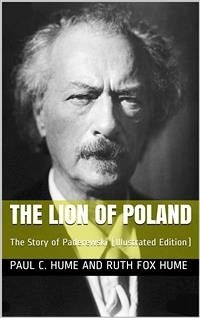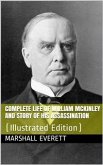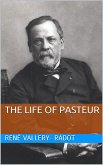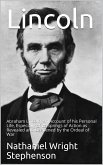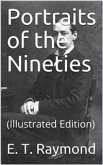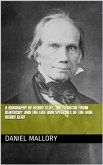Ignacy Jan Paderewski; 18 November [O.S. 6 November] 1860 – 29 June 1941) was a Polish pianist and composer, freemason, politician, statesman and spokesman for Polish independence. He was a favorite of concert audiences around the world. His musical fame opened access to diplomacy and the media.
Paderewski played an important role in meeting with President Woodrow Wilson and obtaining the explicit inclusion of independent Poland as point 13 in Wilson's peace terms in 1918, called the Fourteen Points. He was the Prime Minister of Poland and also Poland's foreign minister in 1919, and represented Poland at the Paris Peace Conference in 1919. He served 10 months as prime minister, and soon thereafter left Poland, never to return.
After three years of diligent study and a teaching appointment in Strasbourg arranged for by Leschetizky, Paderewski made his concert debut in Vienna in 1887. He soon gained great popularity and his subsequent appearances (in Paris in 1889 and in London in 1890) were major successes. His brilliant playing created a furor that reached to almost extravagant lengths of admiration; and his triumphs were repeated in America in 1891. A large part of his great success stemmed from his stage presence and his striking looks. Paderewski had immense charisma, which would prove equally important in his political and charitable activities. In 1891 the pianist set for a tour of the United States, which brought him great acclaim and fortune as well as access to the halls of power. His name at once became synonymous with the highest level of piano virtuosity. Not everyone was equally impressed, however. After hearing Paderewski for the first time, Moriz Rosenthal said: "Yes, he plays well, I suppose, but he's no Paderewski". America became the place he toured most often (over 30 times in 50 years) and his second home.
In 1919, in the newly-independent Poland, Pilsudski, who was the Chief of State, appointed Paderewski as the Prime Minister and Minister of Foreign Affairs (January 1919 – December 1919). He and Dmowski represented Poland at the 1919 Paris Peace Conference, dealing with issues regarding territorial claims and minority rights. Paderewski then brought hard evidence of Soviet atrocities to international attention, such as the targeting of Jews during the Polish–Soviet War, when the Soviet Union failed to conquer Poland. He signed the Treaty of Versailles, which recognized Polish independence won after WWI and the subsequent Soviet invasion was halted.
Paderewski played an important role in meeting with President Woodrow Wilson and obtaining the explicit inclusion of independent Poland as point 13 in Wilson's peace terms in 1918, called the Fourteen Points. He was the Prime Minister of Poland and also Poland's foreign minister in 1919, and represented Poland at the Paris Peace Conference in 1919. He served 10 months as prime minister, and soon thereafter left Poland, never to return.
After three years of diligent study and a teaching appointment in Strasbourg arranged for by Leschetizky, Paderewski made his concert debut in Vienna in 1887. He soon gained great popularity and his subsequent appearances (in Paris in 1889 and in London in 1890) were major successes. His brilliant playing created a furor that reached to almost extravagant lengths of admiration; and his triumphs were repeated in America in 1891. A large part of his great success stemmed from his stage presence and his striking looks. Paderewski had immense charisma, which would prove equally important in his political and charitable activities. In 1891 the pianist set for a tour of the United States, which brought him great acclaim and fortune as well as access to the halls of power. His name at once became synonymous with the highest level of piano virtuosity. Not everyone was equally impressed, however. After hearing Paderewski for the first time, Moriz Rosenthal said: "Yes, he plays well, I suppose, but he's no Paderewski". America became the place he toured most often (over 30 times in 50 years) and his second home.
In 1919, in the newly-independent Poland, Pilsudski, who was the Chief of State, appointed Paderewski as the Prime Minister and Minister of Foreign Affairs (January 1919 – December 1919). He and Dmowski represented Poland at the 1919 Paris Peace Conference, dealing with issues regarding territorial claims and minority rights. Paderewski then brought hard evidence of Soviet atrocities to international attention, such as the targeting of Jews during the Polish–Soviet War, when the Soviet Union failed to conquer Poland. He signed the Treaty of Versailles, which recognized Polish independence won after WWI and the subsequent Soviet invasion was halted.

